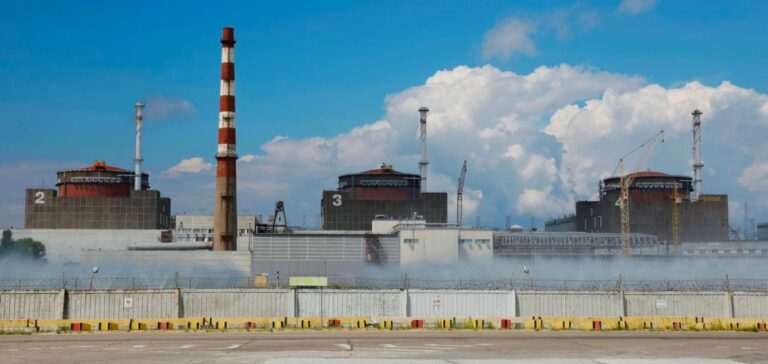Russia has formally appropriated the Zaporizhia nuclear power plant in southern Ukraine, which it has occupied militarily since early March, according to a decree signed Wednesday by President Vladimir Putin.
Shortly after this announcement, the head of the International Atomic Energy Agency (IAEA), Rafael Grossi, who had planned to visit Kiev and Moscow this week, announced his departure for the Ukrainian capital to discuss the establishment of a protection zone around the plant.
The latter, the largest in Europe, is located in the Zaporizhia region, one of the Ukrainian territories officially annexed last week by Russia, and not far from the demarcation line between the territories controlled by Kiev and those occupied by Moscow.
“The government shall ensure that the nuclear facilities of the plant (…) are considered federal property,” the Russian decree reads.
The Ukrainian operator Energoatom said it considered Vladimir Putin’s decree “null and void, absurd and inappropriate”.
“The Zaporijjia plant will continue to operate in Ukraine, in accordance with Ukrainian legislation, in the Ukrainian energy system, in Energoatom,” the company added on Telegram.
While the administrative management of the plant was transferred to Moscow on Wednesday, Energoatom was indignant about “the creation of pseudo companies with the names of Ukrainian companies.
This Russian decision shows “the agony of the imaginary crazy world of the aggressor country”, still blasted the Ukrainian operator.
Moscow and Kiev have been accusing each other of bombing the site for several months, with these strikes raising the spectre of a major nuclear disaster similar to that of Chernobyl in 1986.
Last weekend, the Ukrainian director of the plant, Igor Murashov, was briefly detained by the Russians before being released.
The head of Energoatom, Petro Kotine, has since taken over, he announced Wednesday morning.






















